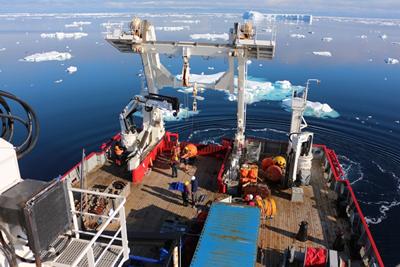Research project: Southern Ocean Carbon and Heat Impact on Climate (SO-CHIC)
This project will advance our understanding of, and quantify, the variability of heat and carbon budgets in the Southern Ocean. The project will investigate the key processes controlling exchanges of heat and carbon between the atmosphere, ocean and sea ice, using a combination of cutting-edge observational and modelling approaches.
